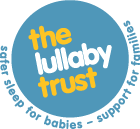 One of the biggest concerns for nannies and parents alike is that nannying can be isolating for both nanny and child. Social contact is important for all human beings and as well as giving children the opportunity to play with others, going to groups and setting up playdates also gives nannies the opportunity to model social skills and how to form healthy relationships. But if you’re new to having a nanny or new to an area, how do you get started?
One of the biggest concerns for nannies and parents alike is that nannying can be isolating for both nanny and child. Social contact is important for all human beings and as well as giving children the opportunity to play with others, going to groups and setting up playdates also gives nannies the opportunity to model social skills and how to form healthy relationships. But if you’re new to having a nanny or new to an area, how do you get started?
Have clear expectations
Whether you’re a parent or a nanny the interview process is the time to test out the other party’s take on socialising. It’s a question that might throw first-time employers but it can be helpful to remember that nannies don’t have coworkers and benefit from some kind of adult contact during the day so although it might feel like they’re asking to have their friends over to drink your coffee that’s not really the case, they just happen to have a network of ‘colleagues’ that they can take from job to job. There are no hard and fast rules , the most important thing is that both sides are happy with what is agreed.
Nannies don’t just have to see nannies
Sometimes new nannies can get hung up on only soicalising with other nannies and miss out on all the other social possibilities out there. While it can be great to meet up with someone who understands where you’re coming from, parents and childminders at groups with similar aged children can also enrich your social circle and at the end of the day playdates should be for children.
Be pro-active
Although there is a lot to get to grips with when you start a new job, be pro-active about finding social opportunities. Posting on the Nannyjob Meet Other Nannies messageboard or joining our social club for nannies can help you find nannies working near you and the Places to Go section will help you find activities in your area. Searching for groups and
Different social circles or friends in common?
This is probably one of the trickiest social situations to navigate. Are you happy to meet up with your boss’s NCT group and are they comfortable with that? Would you prefer that your nanny only meets up with people you know during work hours? What about playdates for school aged children? What about nannies who only work part-time? Again there are no hard and fast rules but communication is key to finding something that works for both of you!





 This is a guest posting from The Lullaby Trust. The Lullaby Trust, formerly FSID, promotes expert advice on safer baby sleep and provides specialist support for bereaved families.
This is a guest posting from The Lullaby Trust. The Lullaby Trust, formerly FSID, promotes expert advice on safer baby sleep and provides specialist support for bereaved families.